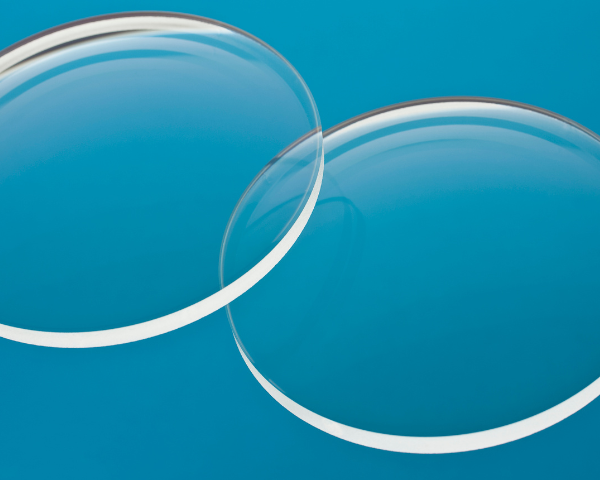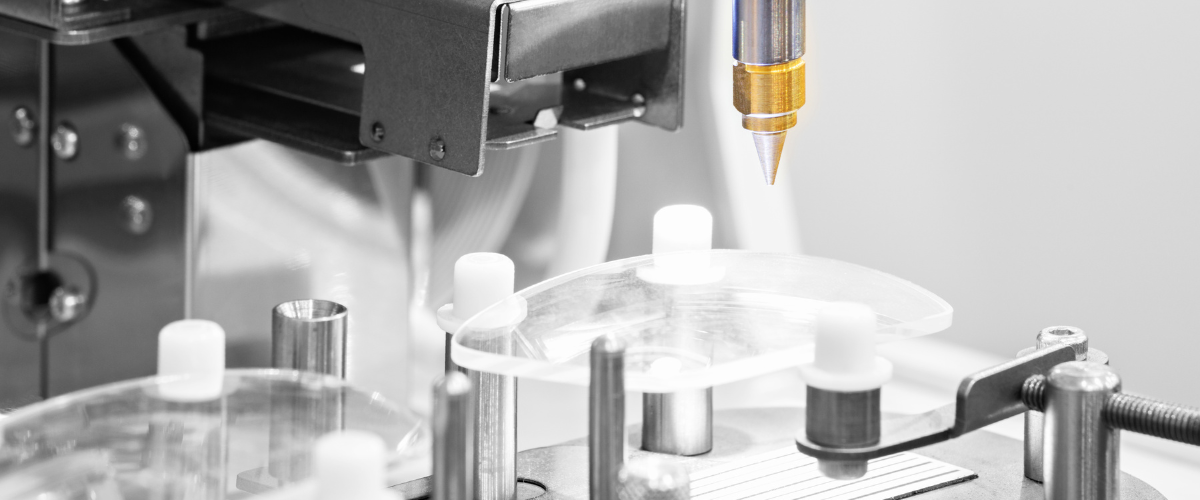Ask our optical dispenser
Your request was successfully submitted!
The History and Evolution of Multifocal Lenses

Reviewed by
Maria Horan FBDO
It’s not an exaggeration to say that ophthalmic lenses have changed the course of history, opening up a world of possibilities for the visually impaired, and giving them the chance to live much fuller lives.
Lens quality and technology have come a long way, and one significant advancement in this regard has been the development of multifocal lenses (also known as varifocal or progressive lenses).
As opposed to traditional lenses, multifocal lenses contain three different prescriptions, with each one blending seamlessly into the next. They give the wearer clear vision at near, intermediate and far distances when they look through the appropriate part of the lens.
Although there is an initial adjustment period when wearing multifocal lenses, they have revolutionised the way individuals with presbyopia and other vision issues experience the world.
In this article, we will explore the history and evolution of multifocal lens design, from their humble beginnings to their modern, high-tech incarnations.
Bifocal lenses: the first multifocal lenses
Before multifocal lenses became a reality, people with presbyopia, a common age-related vision condition that impairs near vision, relied on bifocal lenses.
Bifocals, which were invented by Benjamin Franklin in the late 18th century, featured two distinct areas in the same lens, one for distance vision and the other for near vision.
However, the abrupt transition caused by the visible lines between these two zones was less than ideal, as it required wearers to adjust their gaze significantly when shifting from distant to near tasks.


DID YOU KNOW?
The multifocal lens market was valued at $29.9 billion in 2021, highlighting how popular they’ve become.
The creation of the first multifocal lenses
Although already a big step forward from single vision lenses, the limitations of bifocals led to the development of multifocal lenses, which offer a smoother transition between viewing areas. So when were multifocal lenses invented?
The “invention” of multifocal lenses is not exactly straightforward. In 1907, British optometrist Owen Aves proposed a multifocal lens design and patented it.


Estelle Glancy patented another design for such lenses in 1924, and in 1955, Irving Rips produced a bifocal lens with a seamless transition. None of these went on to be commercially successful, so the legacy belongs to someone else.
French engineer Bernard Maitenaz generally gets the credit for the invention of the multifocal lens. He patented a design in 1953, which was then produced by Societé des Lunetiers (now Essilor) in 1959.
It was called the Varilux and was the first multifocal lens to be commercially successful, with further advances stemming from there.
Commercial production
The timing of Maitenaz’s multifocal lenses played a part in their success. Any previous production efforts had been very labor intensive.
It wasn’t until the mid-20th century that advances in technology allowed for more efficient and cost-effective production of early multifocal lenses.
The introduction of computer-aided design (CAD) and precision machining in the 1970s greatly improved the manufacturing process.
This made multifocal lenses more accessible to a broader range of individuals, fueling their popularity.


Freeform technology in multifocal lenses
From 1981 onwards, multifocal lenses underwent a transformation thanks to the integration of freeform technology. This innovation allowed for custom-designed lenses tailored to the unique needs of each wearer.
Freeform technology utilises computer algorithms to create multifocal lens designs that consider the wearer’s prescription, frame measurements and even their specific visual habits. The result is a highly personalised and optimised visual experience.
Before the advent of freeform technology, all multifocal lenses were made from pre-produced moulds, which were semi-finished lenses. There was less room for customization as, essentially, manufacturers couldn’t start the lens-crafting process at step one.
Nowadays, all major manufacturers use freeform technology to create multifocal lenses – and single vision lenses – that can cater to the exact specifications of the wearer.
Modern multifocal lenses
In the modern era, multifocal lenses have reached their zenith, offering superior optics, comfort and convenience.
Modern multifocal lenses are crafted using state-of-the-art digital surfacing techniques that precisely control the curvature of the lens surface and its power distribution.
This ensures minimal distortion and a wider field of clear vision, addressing the limitations of earlier designs.
Additionally, advancements in materials have made multifocal lenses thinner, lighter and more aesthetically appealing. Many varifocal lenses now come with coatings that reduce glare, minimise reflections, and repel dirt and water.
A huge amount of progress has been made, but there is certainly more to come. With technology advancing at an exponential rate, there should be plenty of innovation ahead in the field of multifocal lenses and prescription lenses in general.
If you’re curious to learn more about multifocal lenses or improve your optical knowledge, head over to our Optical Center for more informative articles.





































